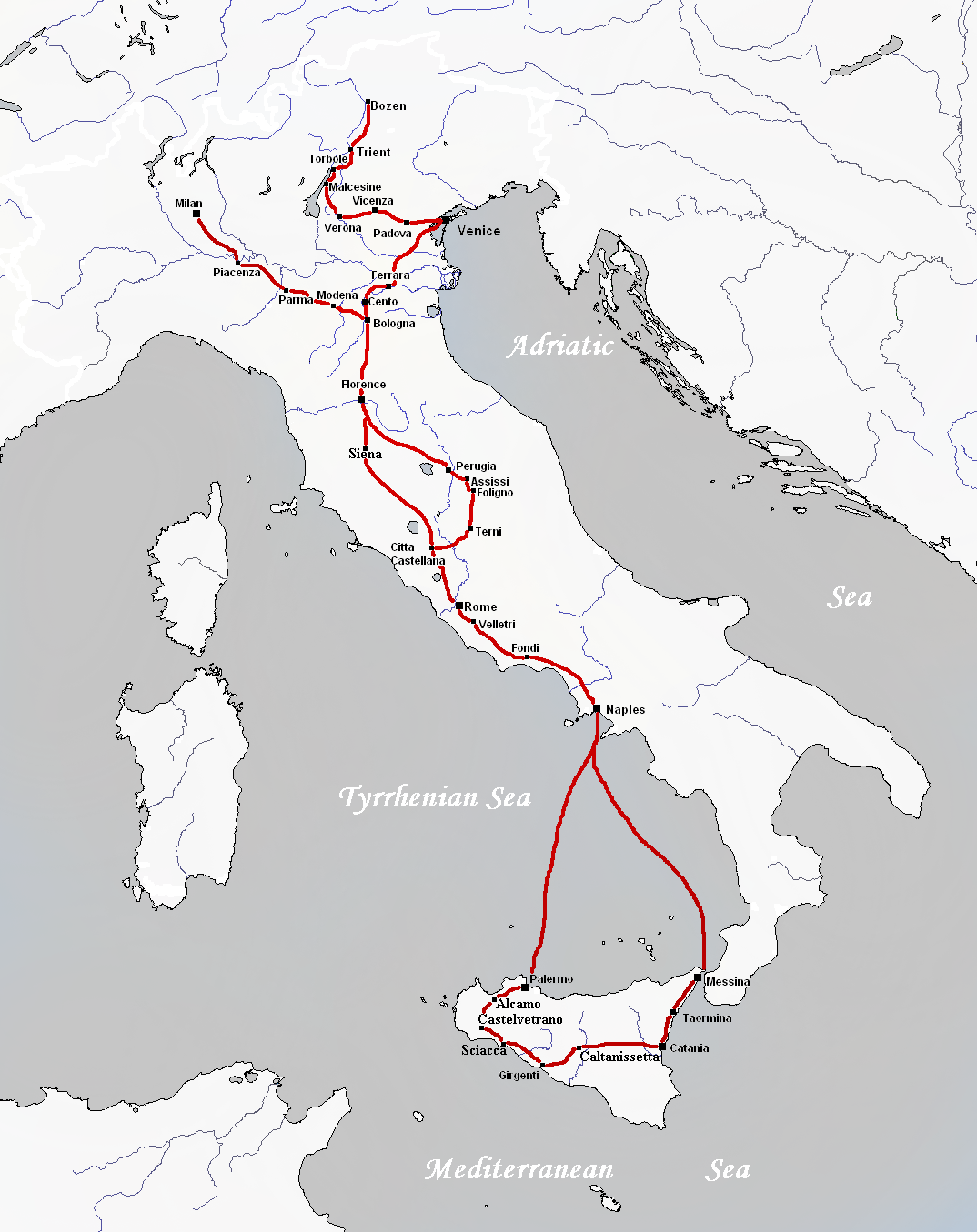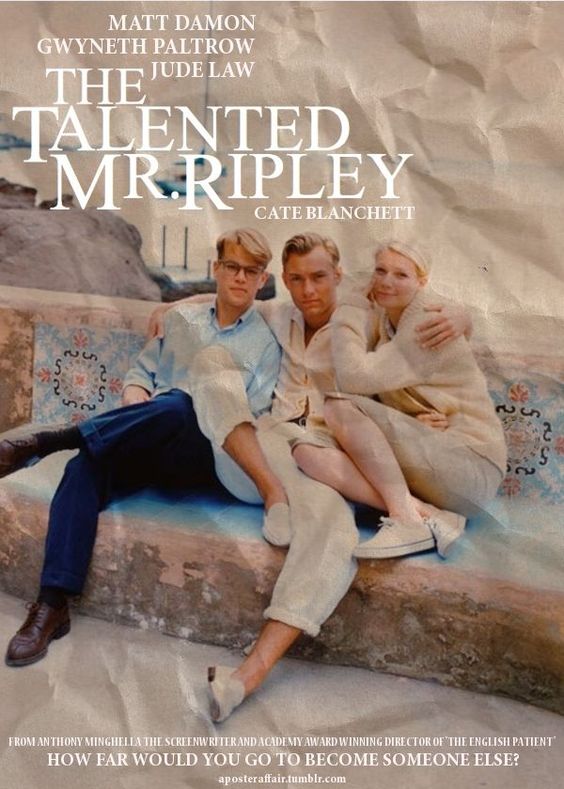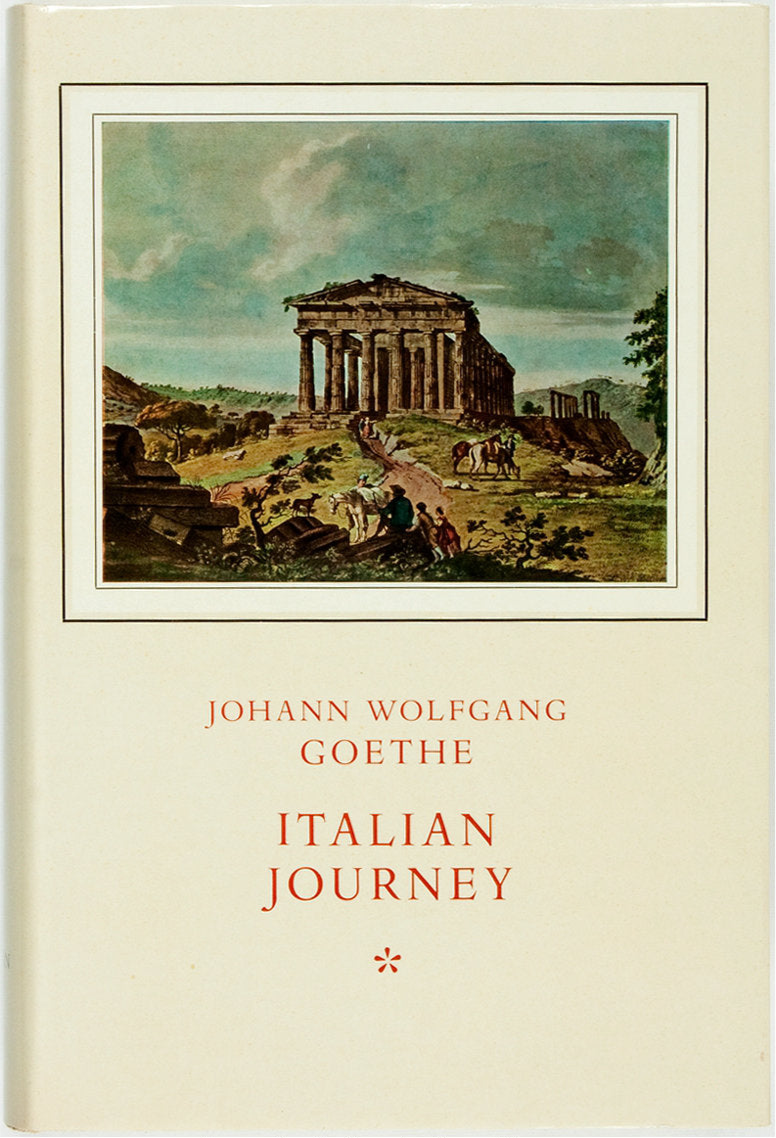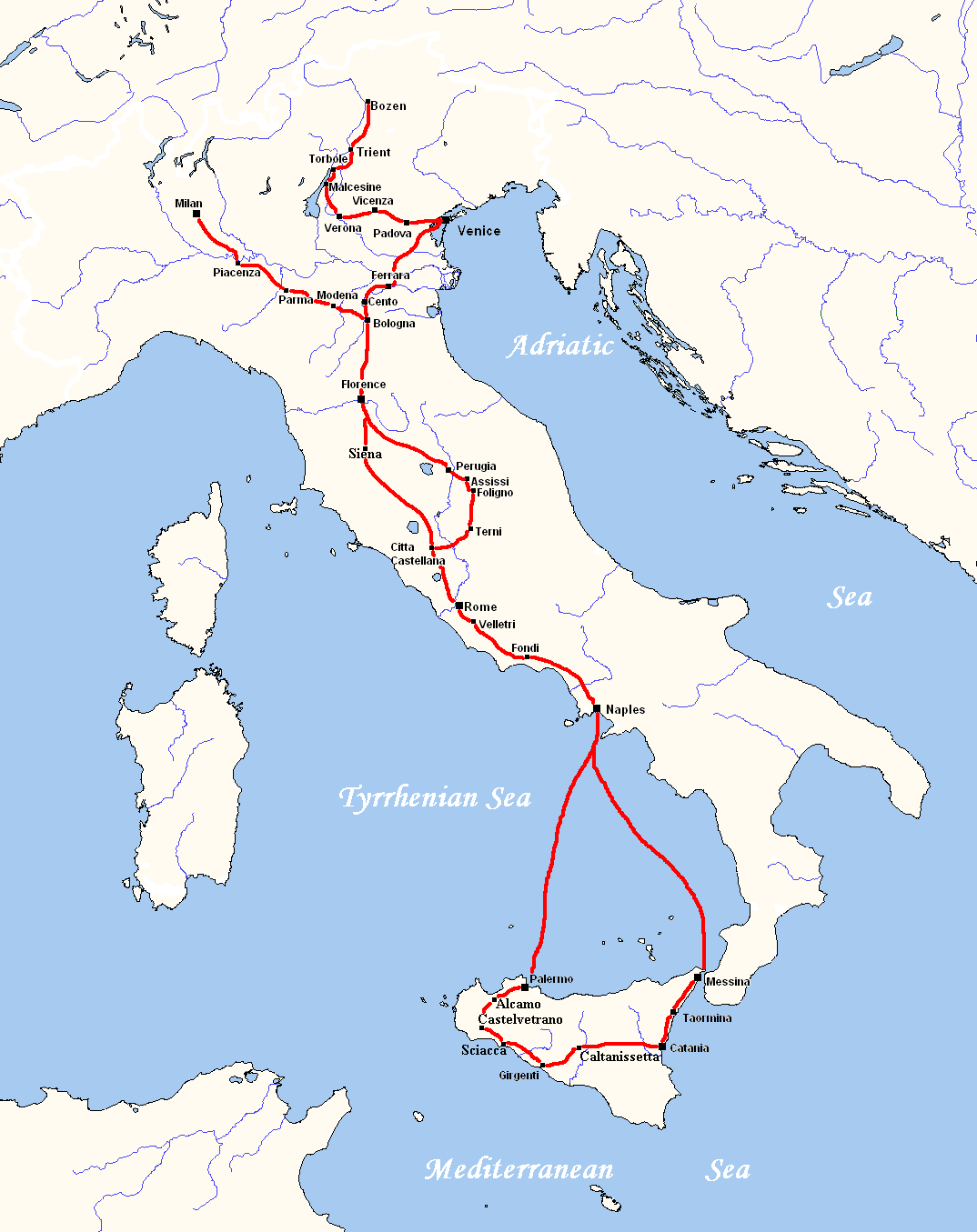Italy by the Rest of the World

Through the eyes of authors and filmmakers.
Italy by the Rest of the World
By Antonia Fest
July 10, 2023
Italy is a land of endless inspiration. Since antiquity, every artform has tried its hand at rendering its elusive yet uncontested beauty. Artists who were born and raised on its soil devote their lives to the interpretation and expression of their exquisite land. But it is not just those with Italian blood coursing through their veins who have truly understand and captured its unshakeable charm.
Throughout history, foreign feet have trodden all over the country; some for fleeting adventures and others who could never bring themselves to leave. Their deep immersion into this foreign culture has rewarded them with an eye for the little details which shirk cliché in favour of authentic portrayals. Sometimes, it is their outsider perspective which allows them to recognise that which makes Italy Italy and Italians Italians. Their odes to Italy touch many who share the obsession for a country which may not be their home but is certainly where their heart is. Here are a few foreign names who have also successfully brought Italy to life in their words and in their vision.
In France, Spain and Italy, 3 countries renowned for their excellent alcohol and their emphasis on togetherness, toasting can almost be a daily occurrence. Each of these nations has its own drinking traditions although many are also aligned. Here we explore the origins, the customs and the rules of toasting in the southern Med.

Call Me by Your Name, Andre Aciman
“They are embossed on every song that was a hit that summer, in every novel I read during and after his stay, on anything from the smell of rosemary on hot days to the frantic rattle of the cicadas in the afternoon - smells and sounds I’d grown up with and known every year of my life until then but that had suddenly turned on me and acquired an inflection forever colored by the events of that summer.”
Made famous by the Italian director, Luca Guadagnino’s adaptation of the book, it is Andre’ Aciman who first envisioned the seductive world of Elio and Oliver in Call Me By Your Name. The book is infused with evocative descriptions of an endless Mediterranean summer; small-town piazzas baking in the heat, al fresco lunches dappled with golden light, refreshing swims in the late afternoon, invigorating scents of herbs and flowers wafting through the characters’ paths. At the heart of this wrenching novel, is a love story but it is also a love letter written by the author to Italy. His depictions of the country with all its beauty and its beastliness, for all its loveliness and lasciviousness, are generous in their authenticity and sparing in their platitudes.


A Month in Siena, Hisham Matar
“The strange thing was that I never suffered this [desire to be elsewhere] in Siena. Every day and for the entire month I spent there I felt myself to be in time ...Everything I experienced was happening at the pace at which it ought to happen.”
At the age of 19, the author discovered the school of Sienese painting. In the same year, his father disappeared in connection to persecutions by the Ghaddafi regime. Many years later, he visited Siena alone, staying there for a month to fall further in love with the paintings which offered him beauty at a time of great cruelty. Matar writes of his quiet everyday encounters with the locals alongside his ponderings on the medieval and Renaissance masterpieces which adorn the town’s churches and museums. Regardless, his confrontations with today’s people and the past’s painting are equally profound. Matar is a great observer which is reflected in his meticulous renderings of Tuscan life and culture.


Italian Journey, Goethe
Do you know the land where lemon blossom grows?
Amid dark leaves the golden orange glows.
A gentle breeze drifts down from the blue sky,
still stands the myrtle, and the laurel high.
Might you know it?
There, there
Would I with you, oh my beloved, go.
In the 19th century, the German poet J.W. Goethe embarked on a series of journeys through Italy exploring the length and breadth of the land, its people and its cultures. The result was a collection of poems titled ‘Italian Journey’, which is Goethe’s purest ode to this foreign land. He writes longingly of love and passion all shrouded under a landscape of lemon blossoms and blue skies. His works were so alluring that they are what first sparked the German interest in travel to the southern Mediterranean. Goethe’s renowned in his homeland ensured that everyone would hang onto his every honeyed word that he wrote on Italy. It was always right to trust him. More than 200 years later, Goethe’s descriptions of Italy ring true which is testament not only to his sensitive writing but also to Italy’s eternal allure.





